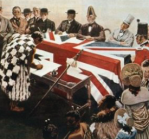Northland Climate Change Action
Climate change is shaping to be the preeminent challenge of the 21st century, presenting an unprecedented threat to a peaceful and prosperous world. This project aims to promote collaborative action to promote a wide range of climate change initiatives.
These pages outline background information and initiatives for action in Northland.
Project Drawdown provides the framework for action.
Projects:
- Food: (Reduced food waste # 3 and Plan-rich diet # 4)
- Regenerative agriculture # 11 (2 solutions – dairy and drystock)
- Trees (# 12, #15, #38)
- Māori response to climate change # 39
- Electricity and Transport (Microgrids # 78, Rooftop solar #10 and Geothermal # 18 Electric vehicles # 26, Electric bikes # 69 and Walkable cities # 54)
- Project co-ordination
The questions
Each of the solutions include a set of questions about how the solution is applied in the Northland context. These questions will be refined over time to provide the focus for questions and implementation projects.
Climate change as an opportunity?
In concluding his Drawdown presentation at Seattle, Paul Hawken presented global warming as a gift. At about 58 minutes into the presentation he states…
This is happening for us. This is a gift. This is an offering. This is feedback from the only home we know which is Planet Earth and it is feedback from the atmosphere, and it is begging us to transform everything we do and reimagine it to make a far kinder, more generous, compassionate, beautiful, productive world than the one we have today.
There is no doubt that this is the greatest crisis humanity has faced, and could well lead to our extinction, but Paul Hawken’s orientation to the problem is much more encouraging and empowering than the doomsayers.
Our tipuna (ancestors) faced challenges in the opening decades of the last century. This time a hundred years ago they faced the Great War, the influenza epidemic, the 1930s depression , and then World War II. Alongside these events the technologies and economic activity that precipitated climate change happened too. I get the feeling this all happened to them. While the crisis we face is far more dire at least we have the opportunity, with our wide eyes open, to see the future we have to create.
If we can achieve the unity of purpose to implement the solutions so clearly extrapolated in Drawdown (and complimentary approaches) by the end of the century we will have a more stable and sustainable world. Nothing short of this should be acceptable for our children and grandchildren.
Implementing Drawdown generates some strong synergies:
- realising partnership
- co-creating planning and design
- deeper democracy
- healing the environment.
Realising partnership
 The Treaty of Waitangi is central to our constitutional framework and creates the foundation for a partnership between Māori and Pākehā that we are yet to fully realise. The climate change challenge is fertile ground for developing our partnership. Māori organisations from a foundation of tikanga often have values congruent with sustainability. This is explored more fully in Indigenous people’s land use.
The Treaty of Waitangi is central to our constitutional framework and creates the foundation for a partnership between Māori and Pākehā that we are yet to fully realise. The climate change challenge is fertile ground for developing our partnership. Māori organisations from a foundation of tikanga often have values congruent with sustainability. This is explored more fully in Indigenous people’s land use.
Co-creating planning and design

Suburban sprawl, unbridled consumerism and the ubiquity of the automobile are some of the more prominent influences shaping how we live today. It happened somewhat haphazardly and was aided by self-interested ploys, such as the General Motors streetcar conspiracy, and marketers like Victor Lebowencouraging consumption.
In the End of Suburbia, James Kunstler described the suburban project “as the greatest misallocation of resources in the history of the world. America took all of its post-war wealth and invested it in a living arrangement that has no future”.
If that is our history, how can be plan better moving forward? We will need to draw on a more inclusive philosophy that guides the way we work together. Fortunately thinkers such as Otto Scharmer identify the values, mindset and tools required to co-create our future. more>>
Deeper democracy
 The New Zealand Initiative (NZI) released their Go Swissreport in October 2017. The NZI is a right leaning think tank, but the Executive Director, Dr Oliver Hartwich identifies subsidarity, exemplified by Swiss governance, as a feature of our new coalition government.
The New Zealand Initiative (NZI) released their Go Swissreport in October 2017. The NZI is a right leaning think tank, but the Executive Director, Dr Oliver Hartwich identifies subsidarity, exemplified by Swiss governance, as a feature of our new coalition government.
Subsidiarity means that problems should be solved at the lowest possible level. Where a city can deal with an issue, a region should not do it. And where a region can tackle it, national government should stay out of it. Dr Oliver Harwich
New Zealand has evolved a very centralised system of governance. While our small population might justify centralised control, we will ideally work to solve problems locally rather than depend on central government solutions. This post explores the issue in more depth.
Healing the environment

Soil carbon is something of a climate change silver bullet. By sequestering carbon in the soil and increasing soil carbon content a whole lot of benefits will follow. Soils become more resilient, better at storing water and nutrients, enabling the movement of water and air, building structure and resisting erosion and compaction. more>>